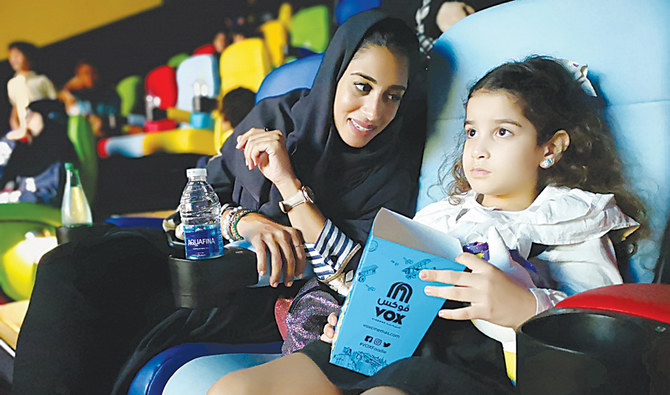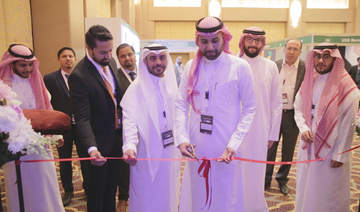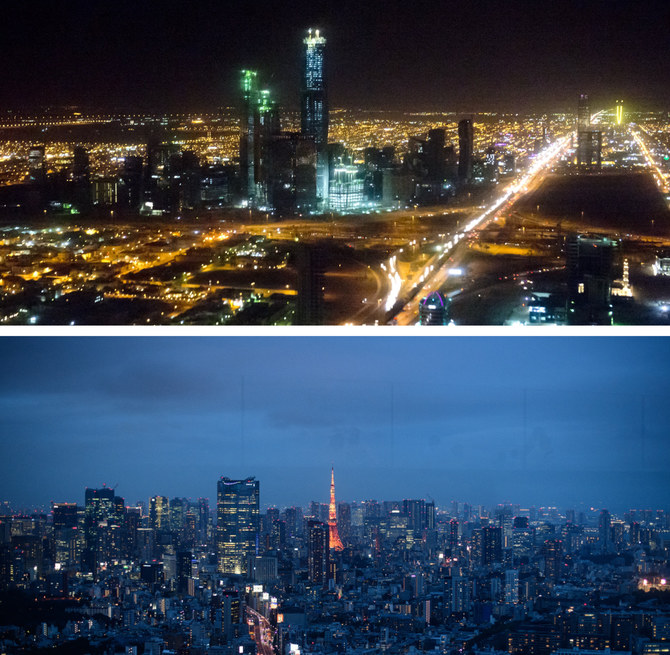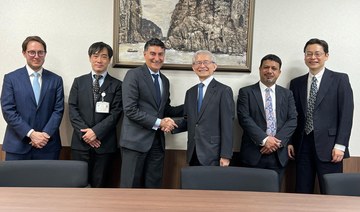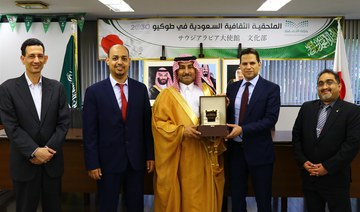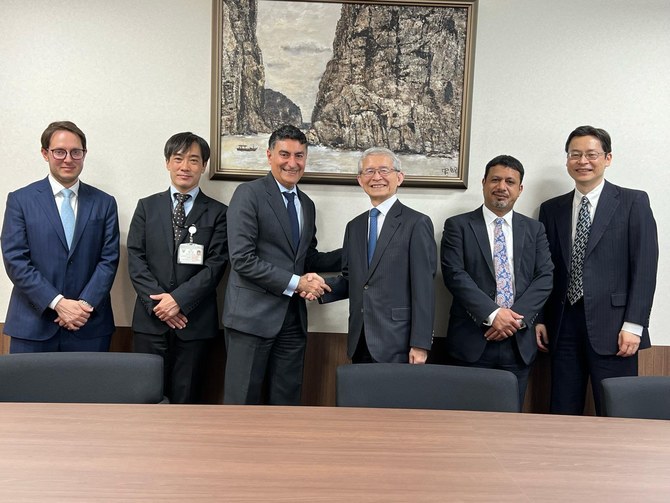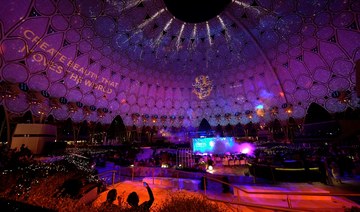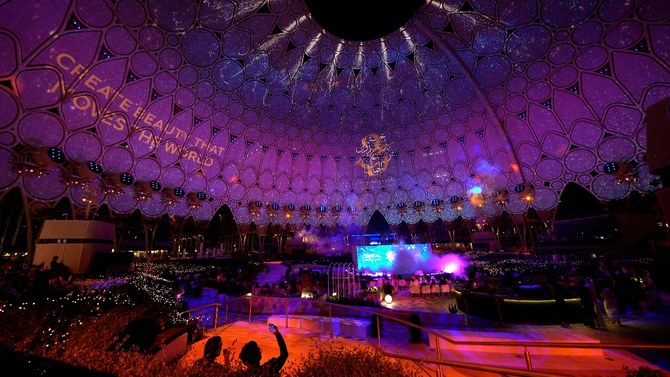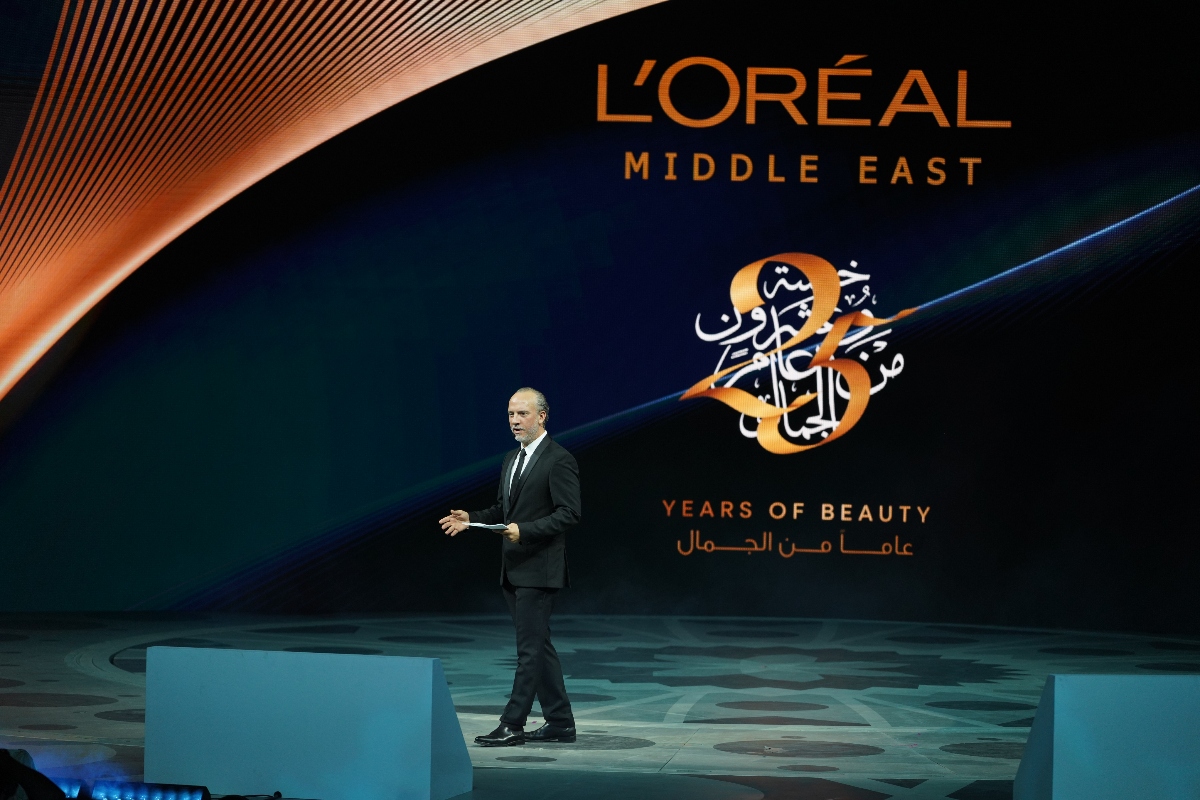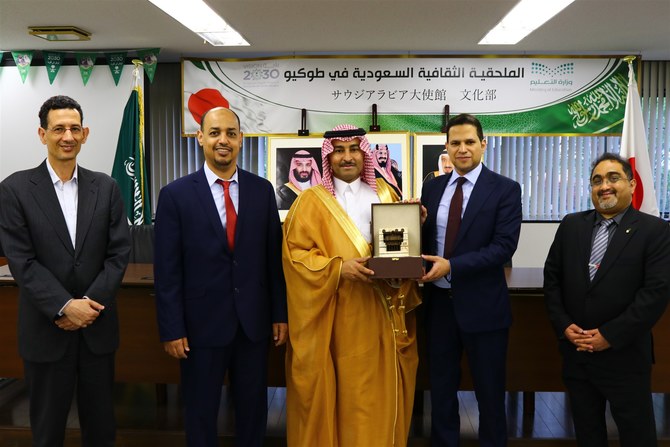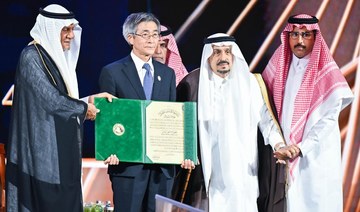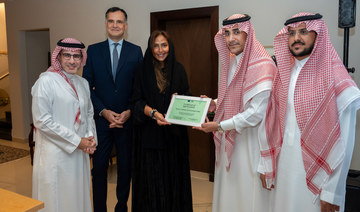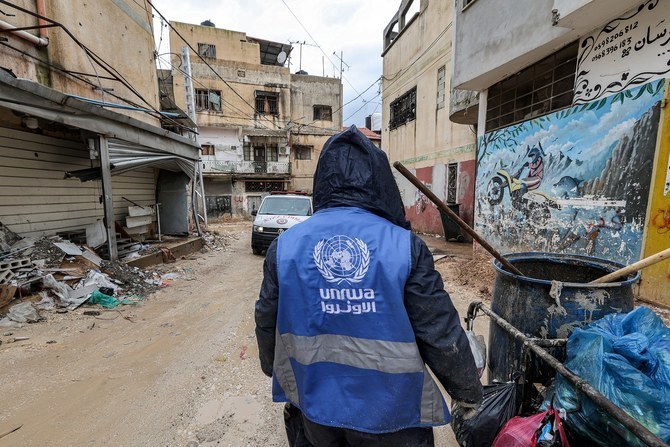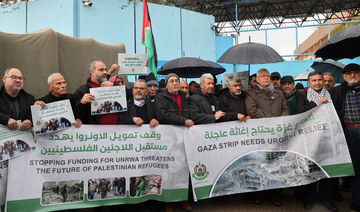JEDDAH: April 18, 2018 will go down as one of the most celebrated dates in Saudi Arabia’s history with the first screening of a film in over 35 years in the capital Riyadh.
Those outside the Kingdom may struggle to understand the significance of this event, but for Saudis unable to attend a film screening on home soil for more than three decades, its importance was immediately apparent.
After spending over half of my life abroad, I returned recently to my home country to find ambitious plans and events taking place all around me — but the one thing I had my heart set on was attending a movie of my choosing with my young daughter.
It was my escape from reality. Two hours in a cinema, shrouded by darkness and popcorn in hand, was what I needed to disconnect from the noisy and distracting world outside. I have been to too many movies to count, but to visit a cinema at home, that truly is one for the books.
My 6-year-old daughter Lilly and I decided on “Dumbo.” Since we are both fans of Disney movies, it was only fitting that our first visit to a cinema in Saudi Arabia would be to watch this classic remake.
With a click of a mouse, I was able to book and buy three tickets online, with no need to queue.
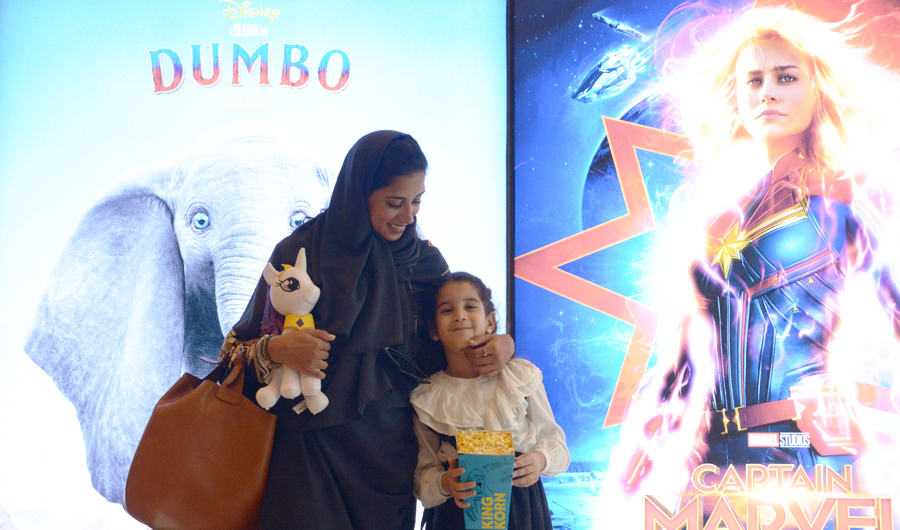
“It is my first time, mommy, and your one million trillionth time” — Lilly
Arriving at Jeddah’s Red Sea Mall VOX theaters, Lilly was in awe. The magnificent life-size poster of Dumbo greeted us as we rode up the stairs. “Mommy, it’s real! He’s still a baby with big blue eyes,” Lilly said, running toward her uncle and reaching for the big bucket of popcorn.
VOX cinemas really had gone all-out to ensure the cinema experience matched that in the US with a seemingly limitless choice of popcorn flavors, candy, chocolates and more.
“It is my first time, mommy, and your one million trillionth time,” Lilly said. “I can have chocolate and popcorn together.”
The halls were packed with excited film fans, all talking about the movies they were about to watch. Children running around excitedly, and the mix of savory and sweet popcorn were a nostalgic reminder of good times spent in cinemas as a child.
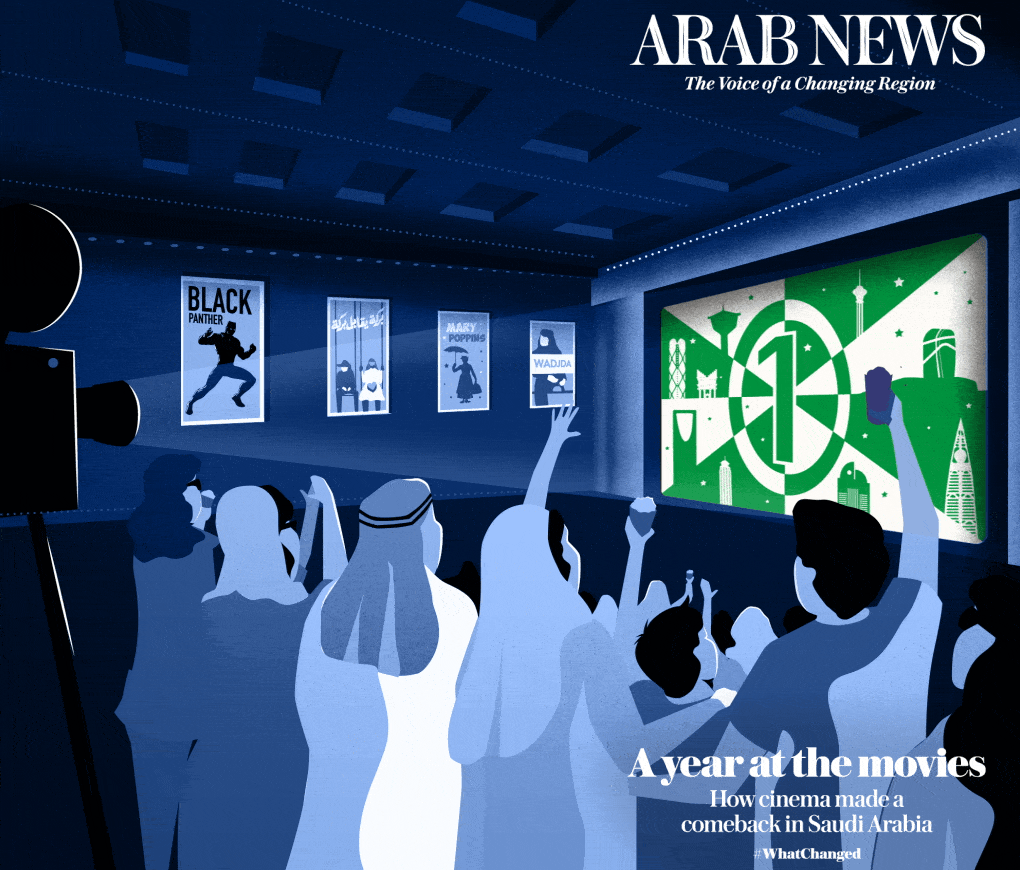
Walking ahead of a group of children, I could hear squeals of delight. With Lilly holding my hand tightly, we walked to room number 9 and opened the door.
The place was packed, but it was great to see how everyone stayed in their designated seats. I could see Lilly’s eyes grow wide as the commercials began and little jolts from the surround sound system shocked her slightly — my feelings exactly. She jumped with glee as she saw Disney’s Cinderella Castle appear on screen.
Throughout the film, I would catch glimpses of my young one laughing as Dumbo peeked out of a bundle of hay, showing his great big ears, and then pouting with sadness at the scene where his mother is taken away.
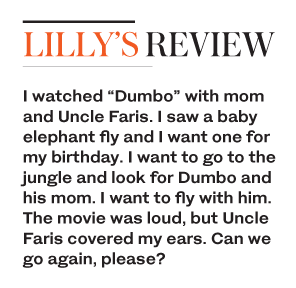 A heavy sense of nostalgia hit me right there and then. I was only a year older than Lilly when I saw my first movie. My mother and father took me to see the Disney classic “The Lion King.” I recall laughing at Zazu when the hippo sat on him, jumping in our seats with popcorn flying as we danced to the music, and feeling intense sadness when Mufasa was killed.
A heavy sense of nostalgia hit me right there and then. I was only a year older than Lilly when I saw my first movie. My mother and father took me to see the Disney classic “The Lion King.” I recall laughing at Zazu when the hippo sat on him, jumping in our seats with popcorn flying as we danced to the music, and feeling intense sadness when Mufasa was killed.
My emotions were raw and real, and this was the experience I wanted my daughter to have. To see and feel, to enjoy the cinema just as much as I do.
As with any children’s movie, my little one’s curiosity was at its peak, and every now and then Lilly would point and ask questions, or notice the strong resemblance between the CGI form of the adorable flying elephant and the cartoon. A child with a good eye for detail, and a “proud mom moment” right there.
Thirty minutes in to the film, I could sense the agitation of the young viewers around me. Curiosity got the better of one boy who zoomed past, skipping down the steps and trying to touch the screen.
A young girl twirled with her dress in front of the viewers, imitating a scene from the film, while another boy squealed past me with his dress shirt open, running to the door with his father in tow, as he screamed “bathroom!” with everyone laughing.
By the end of the film, parents and children were cheering and clapping together as the credits appeared. I looked to my left to see excitement in my little one’s eyes.
“We definitely need to do that again, mom!” she said.
“Definitely? When did you grow up so fast?” I replied.
“Mama. I’m 6 and I just watched an elephant fly in the big TV. I can say big words, too.”
Looking around, I saw the smiling faces of children and parents, couples holding hands, fathers and sons excitedly reviewing their favorite scenes, and little ones covering their eyes as they adjusted to the outside light.
It’s the little things that count, and to add our first shared movie experience in our home country to our list of firsts makes it even more special.
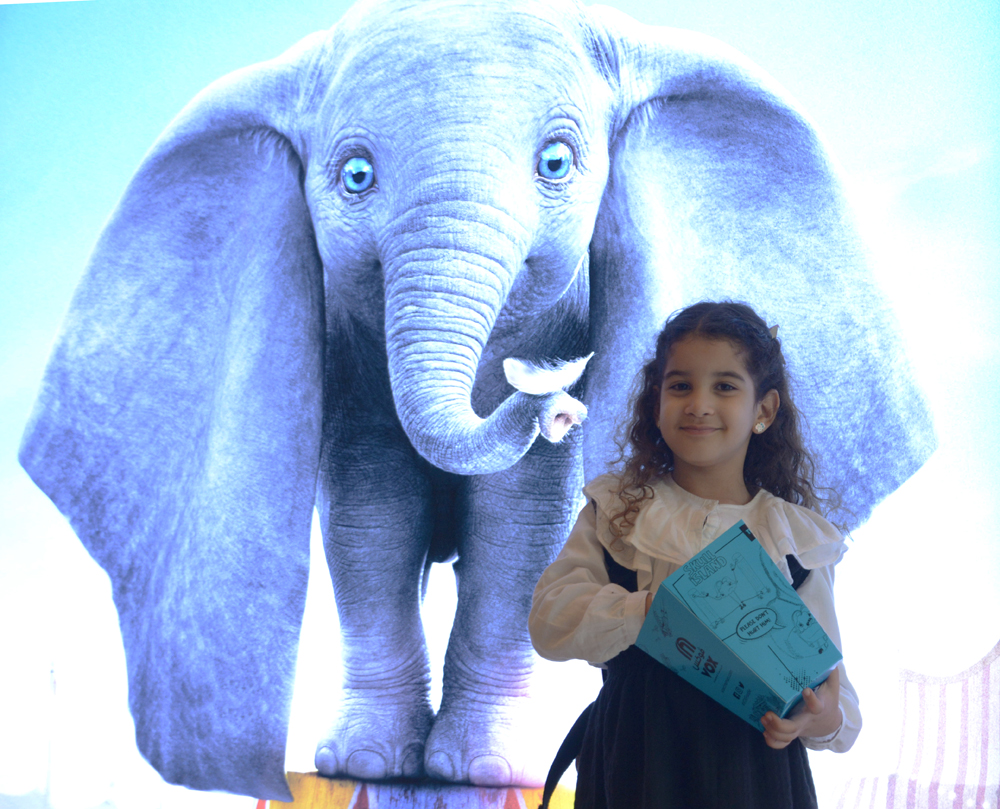
Lilly having a good time. (Arab News photo)




